
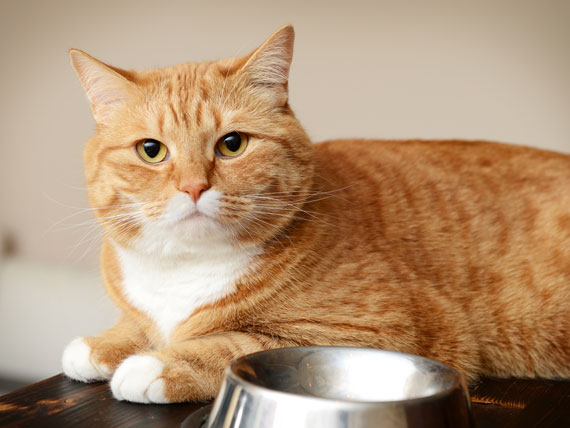
By Lorie Huston, DVM
Choosing a diet for your cat is a task that should not be taken lightly. Grain free and gluten free pet diets have become extremely popular. This popularity has mirrored the appearance of similar products for people. These diets are particularly helpful for people that have celiac disease, intolerance to glutens in general, or allergies to wheat.
Many pet owners choose to mimic their own food choices when choosing a food for their pet. With the increase in the number of people choosing to consume a grain free diet, pet food manufacturers have recognized that similar pet diets are attractive to pet owners. The popularity of these diets has led to an increase in the number of grain free and gluten free diets available for pets.
Are these diets the best choice for your cat? How do you know if your cat needs a grain free or gluten free diet?
Let’s start by discussing the difference between a grain free and a gluten free diet. Grain free cat foods are, as the name implies, diets that do not contain grain. Gluten free cat food, on the other hand, may or may not contain grain as an ingredient. Gluten is the protein that is found in specific types of grain, namely wheat, barley, and rye. Gluten free cat food is, of course, free of these proteins. However, not all grains contain gluten. Therefore, gluten free cat food may or may not be grain free, while grain free cat food will always be gluten free.
Most cats do not actually require a grain free or a gluten free diet. But how do you know if your cat does require one of these diets? To answer that question, let’s take a look at some of the common reasons pet owners choose to feed their cat a grain free or a gluten free diet.
A particularly popular feeding concept that often seems to go hand in hand with feeding grain free pet food is the feeding of a high protein, low carbohydrate diet. High protein, low carbohydrate diets do have their place, particularly in the feeding of diabetic cats. However, it is important not to assume that a grain free diet is a low carbohydrate diet. In fact, some grain free pet foods contain carbohydrate levels similar to or even higher than diets containing grains. In many grain free diets, ingredients such as potatoes replace the grains in the food and often these ingredients have more carbohydrates than the common grains used in pet food. As a result, grain free and low carbohydrate pet foods are not always synonymous with one another.
Another reason that many cat owners choose to feed grain free or gluten free cat foods is a mistaken belief that these diets are the best choice for cats that have food allergies. While food allergies do occur in pets, corn and other grains are not among the most common allergens found in foods. In fact, according to some of the available research, corn is actually one of the least likely sources of food allergy. In one literature review, 56 cats with food allergies were evaluated. Forty-five of the food allergies resulted from eating beef, dairy, and/or fish. Corn, meanwhile, was responsible for only 4 cases.1
For cats that truly do have allergies to protein in grains, a grain free diet would be an appropriate choice. The following are symptoms that would be expected in cats that have food allergies (or other types of allergies).
A food trial with a grain free food would be necessary to determine whether the food is beneficial for your cat.
For most cats, a gluten free diet is not a requirement. The exception would be the rare cat that has an allergy to gluten. This, however, is very uncommon.
Some gluten in the diet can, in fact, be beneficial for providing some of your cat’s protein needs. However, it is important to know that cats are carnivores and they do need animal-derived protein in their diet. So, gluten or other plant-based protein cannot be the sole protein source in your cat’s food.
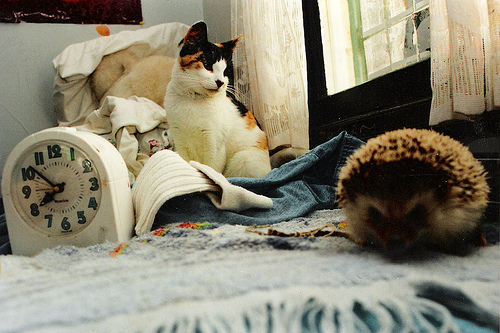 Cat Interfering With Your Sleep?
How to Deal With Your Cat Waking You at Night
Cat Interfering With Your Sleep?
How to Deal With Your Cat Waking You at Night
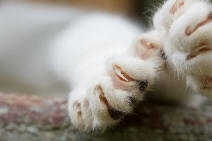 Declawing A Cat
Declawing A Cat What is declawing? Also known as onychecto
Declawing A Cat
Declawing A Cat What is declawing? Also known as onychecto
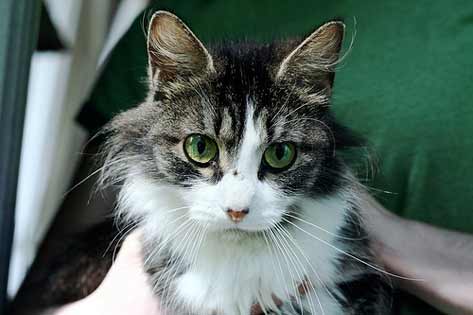 A Cleaner, Greener Home for You and Your Cat
Breathe Easier Knowing Your Home is Toxin Free
&n
A Cleaner, Greener Home for You and Your Cat
Breathe Easier Knowing Your Home is Toxin Free
&n
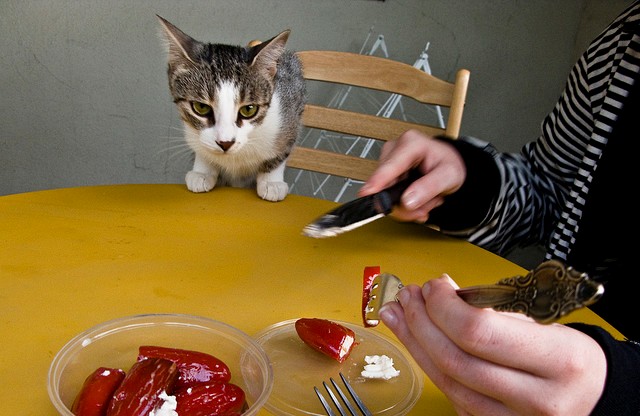 Choosing the Best Feeding Method for Your Cat
Nurturing a cat is not always as easy at i
Choosing the Best Feeding Method for Your Cat
Nurturing a cat is not always as easy at i
 Cat Questions - Common Cat Information
Cat Questions - Common Cat Information We see a number of qu
Cat Questions - Common Cat Information
Cat Questions - Common Cat Information We see a number of qu
Copyright © 2005-2016 Pet Information All Rights Reserved
Contact us: www162date@outlook.com